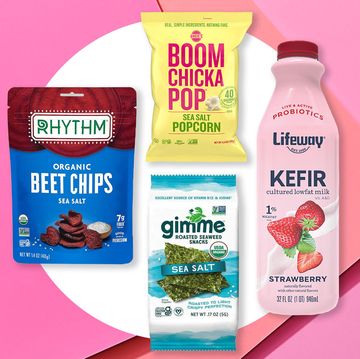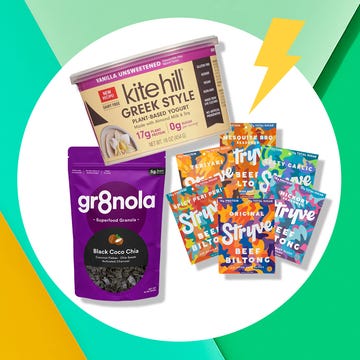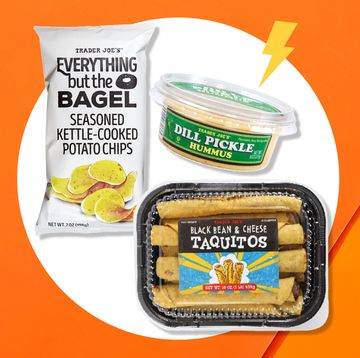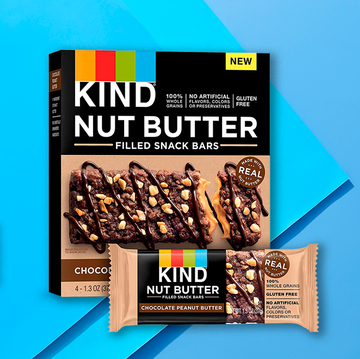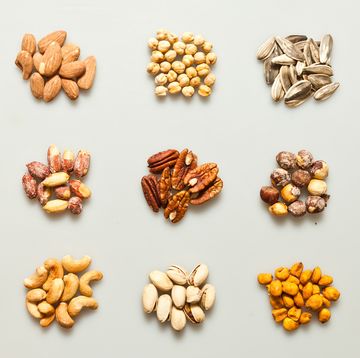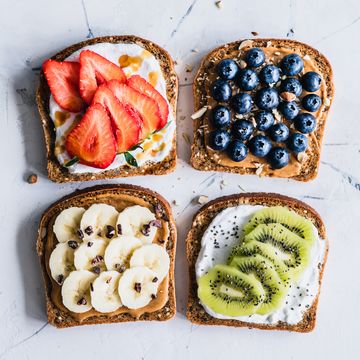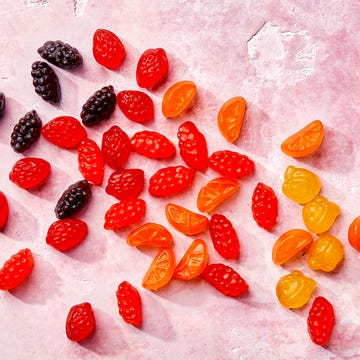Sometimes, cutting certain staples from your diet (ahem, coffee) sets off alarm bells in your body (hello, caffeine headaches!). Give up sugar, for example, and you might feel totally drained for a few days.
For the most part, these are normal side effects that lessen over time. But other times, your body might be trying to tell you that it’s not quite digging your diet. It could be that you’re eating the wrong foods, not consuming enough, or that you’re missing key nutrients. But what are these not-so-normal signs that it’s time to reassess your food choices? We touched base with Ilyse Schapiro, R.D., author of Should I Scoop Out My Bagel?, for five to keep an eye out for.
1. You Are Completely Wiped All the Time
The possible culprit: low iron levels.
Iron is an essential mineral that keeps your energy levels high—it helps transport oxygen throughout the body, aiding your body in functioning at its best. But when levels are low, energy can lag: Your body isn’t able to make enough of the red blood cells that carry oxygen and keep you charged. That’s why one of the top signs of anemia—or low iron levels—is fatigue, says Schapiro.
The fix: If you feel like a zombie, stock up on iron-rich foods like red meat, pork, poultry, seafood, beans, dark green leafy vegetables, iron-fortified cereals, and peas, suggests Schapiro. The National Institutes of Health (NIH) suggests women ages 19 to 50 take in about 18 milligrams of iron each day. If you think you could be iron-deficient, make an appointment with your doc, who can test your iron levels through a simple blood test. If you are deficient, iron supplements—which sometimes contain the full 18 milligrams—could be an option. But don’t take them unless you really are deficient. The NIH says that too much iron could lead to issues like constipation, nausea, abdominal pain, vomiting, and feeling faint.
2. You’re Super Moody
The possible culprit: You might not be taking in enough calories.
There is something to being hangry. In order to keep your energy up and your blood sugar stable—two factors that are not only key for physical health but also for mood—you have to make sure you’re eating enough calories, says Schapiro. For healthy women, that number shouldn’t be under 1,200 calories a day, she notes. If it is? Hello, mood swings (on top of other health issues). But know: “You’ll likely need more calories than that based on your activity level,” says Schapiro.
The fix: If you’re active, she suggests aiming for between 1,500 and 1,800 calories a day to maintain a healthy weight—and closer to 1,400 a day for weight loss.
3. You’re Constipated
The possible culprit: You’re not eating enough fiber.
Ah, fiber. It might not be the sexiest of nutrients, but it’s important. “Fiber adds bulk to your stool, helping it to pass through your digestive system easily,” says Schapiro. As for if you’re lacking it? Things could get clogged up.
The fix: If you’re not used to having fiber in your diet, add it in slowly to prevent cramps, bloating, gas, or diarrhea. Try foods like beans, oats, oat bran, barley, citrus fruits, apples, strawberries, raspberries, pears, avocado, lentils, peas, artichokes, and broccoli. And keep track of how much you’re taking in: The Institute of Medicine suggests that women under 50 aim for 25 grams of fiber a day.
4. You’re Down—and Think You Might Be Suffering Symptoms of Depression
The possible culprit: a lack of carbs.
“Cutting down on carbs can result in weight loss, but going carb-free can lead to low levels of serotonin, a neurotransmitter linked to mood, which could lead to depression,” says Schapiro.
The fix: If you’re sticking with a super low-carb or no-carb diet, make sure you’re eating enough consistently throughout the day to prevent dips in blood sugar and mood swings, she says. But your best bet is to slowly up your carb intake. The key is to do this gradually to prevent major increases in blood sugar and weight gain, says Schapiro. Start with “good carbs:” a slice of whole grain toast at breakfast, an apple for a snack, or even a small sweet potato or half cup of brown rice with lunch or dinner. Of course, if you think you’re experiencing symptoms of depression, make an appointment with your doctor just to be safe.
5. You Notice Clumps of Hair in the Shower Drain
The possible culprit: Your nutrients are out of whack.
Essential nutrients like protein, iron, vitamin E, magnesium, selenium, and copper aren’t just crucial for good health—but for good hair, too, says Schapiro.
The fix: To keep everything in check, start by adding more fruits and vegetables into your diet. It seems simple, but produce is super rich in vitamins and minerals, which all promote hair growth, she says. Focus particularly on protein (chicken, fish, turkey, pork, nuts, Greek yogurt, or eggs are all good sources). After all, your hair is made up mostly of protein (who knew?), and without the strengthening nutrient, your locks could turn lackluster. And don’t skimp on iron-rich foods (pumpkin seeds, beans, lentils, spinach) either! Hair loss has also been attributed to a lack of iron.

Cassie Shortsleeve is a skilled freelance journalist with more than a decade of experience reporting for some of the nation's largest print and digital publications, including Women's Health, Parents, What to Expect, The Washington Post, and others. She is also the founder of the digital motherhood support platform Dear Sunday Motherhood and a co-founder of the newsletter Two Truths Motherhood and the maternal rights non-profit Chamber of Mothers. She is a mom to three daughters and lives in the Boston suburbs.


